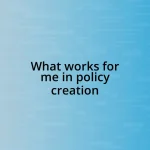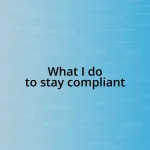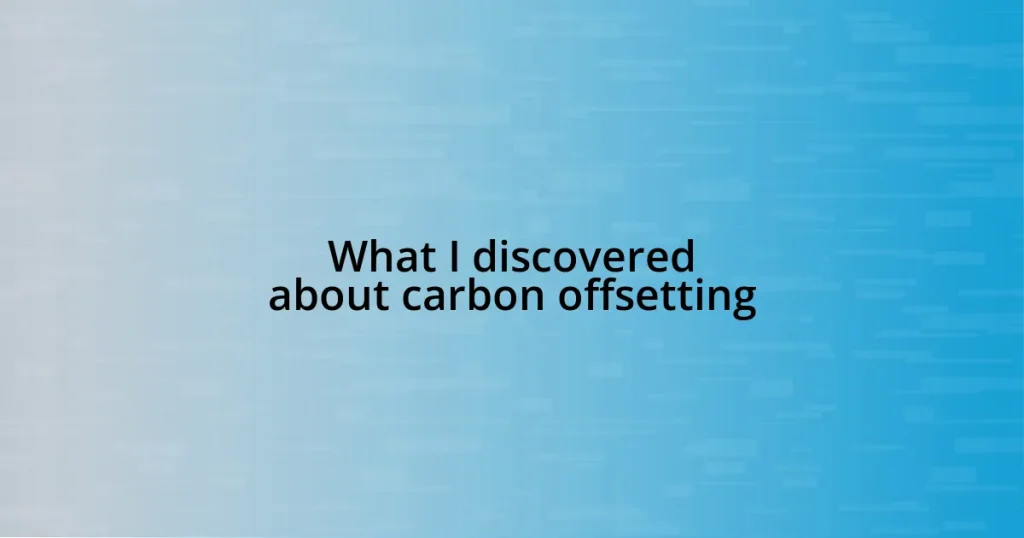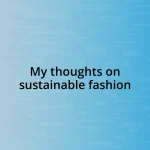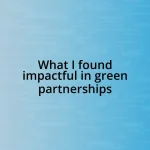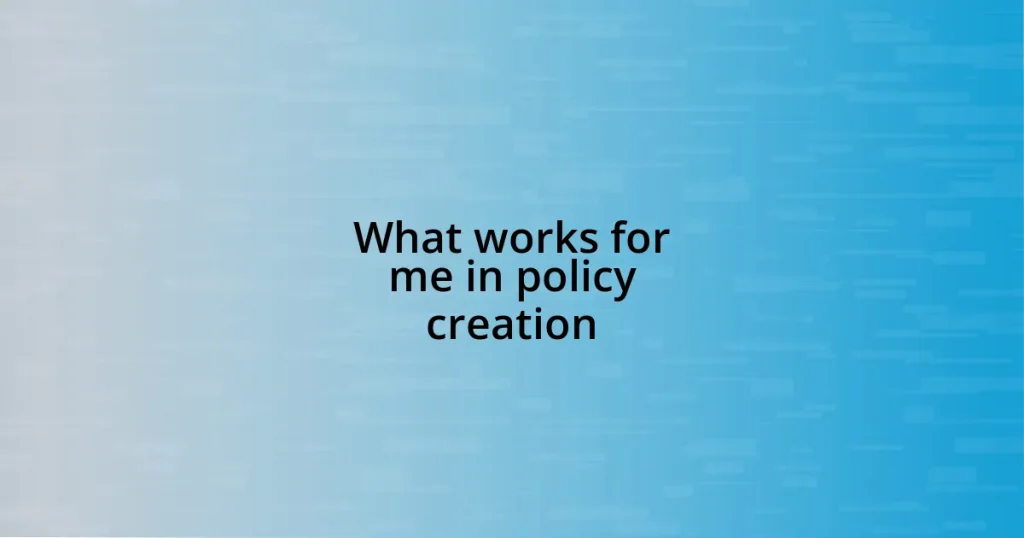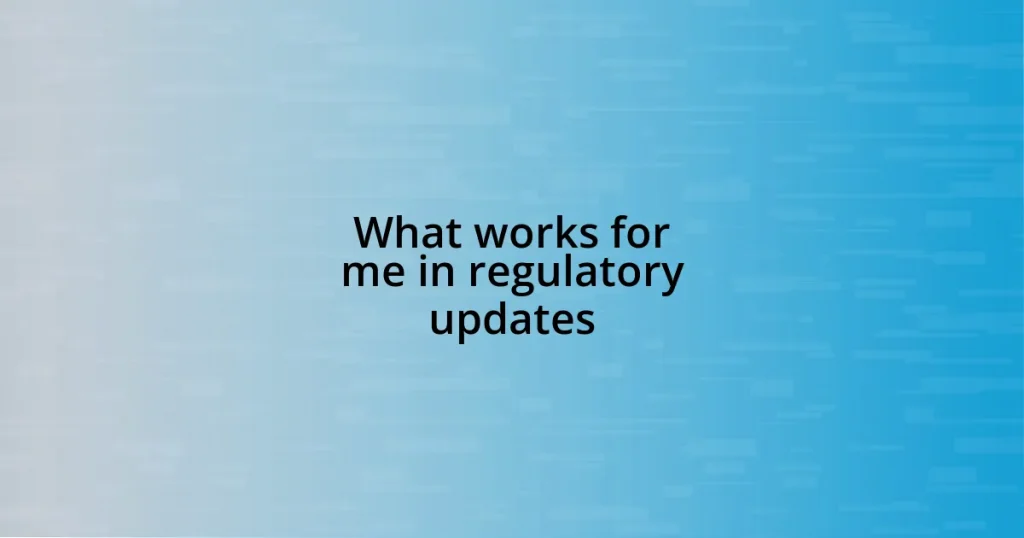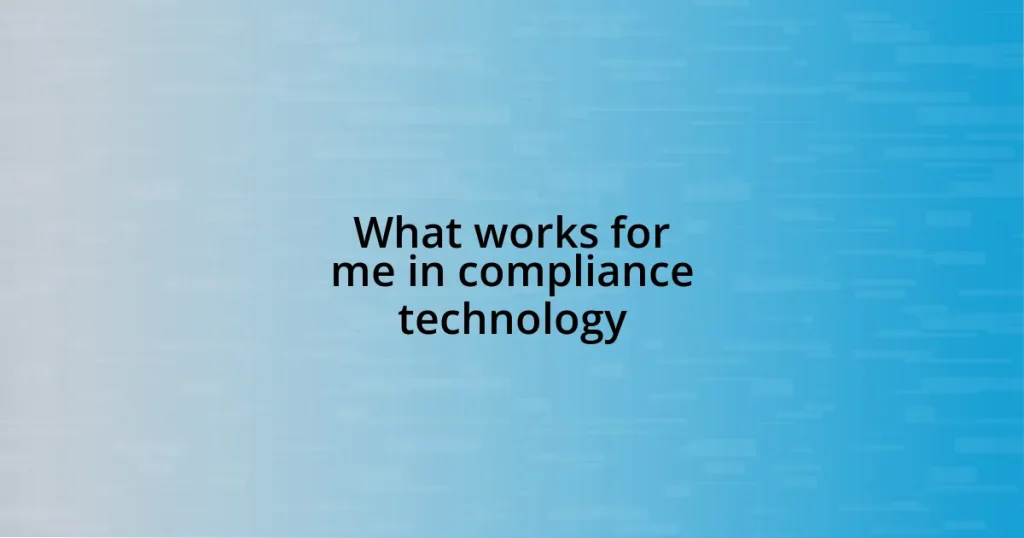Key takeaways:
- Carbon offsetting allows individuals and businesses to compensate for their emissions by funding projects that reduce or remove carbon from the atmosphere.
- Choosing credible carbon offset projects is essential; look for verified initiatives with reputable certifications like the Verified Carbon Standard or the Gold Standard.
- Carbon offsetting promotes community engagement and social benefits, linking environmental responsibility with local economic upliftment.
- It’s a misconception that buying offsets replaces the need to reduce personal carbon footprints; a holistic approach combining both is necessary for meaningful impact.
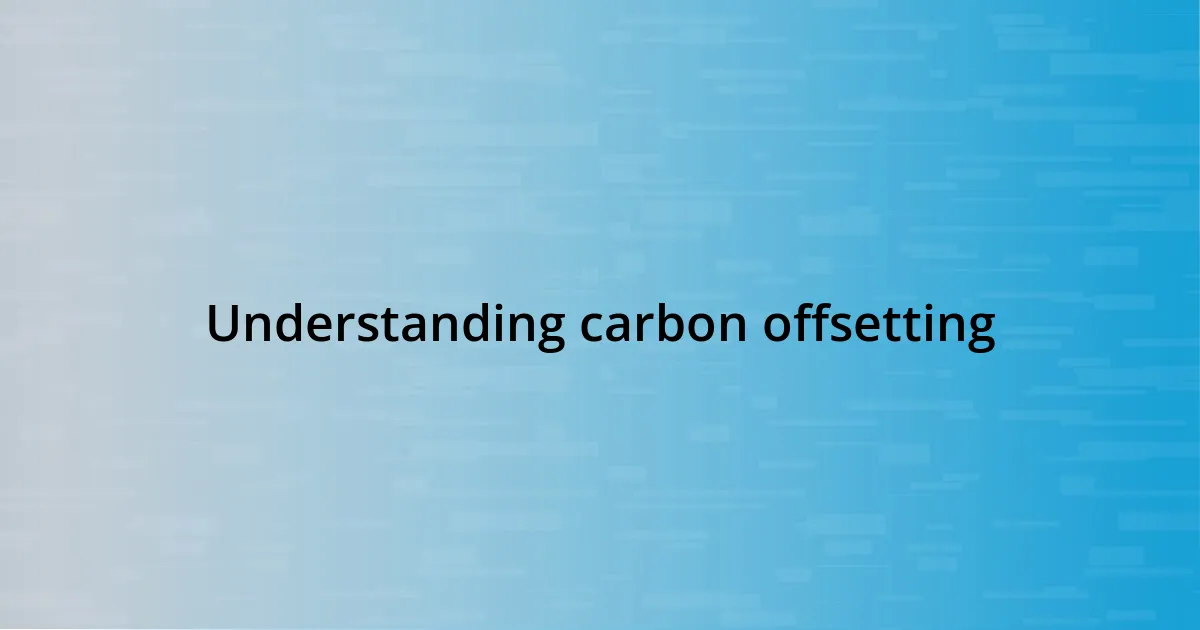
Understanding carbon offsetting
Carbon offsetting is a fascinating concept that I stumbled upon during my quest to understand environmental sustainability better. Essentially, it allows individuals or businesses to compensate for their carbon emissions by funding projects that either remove carbon from the atmosphere or prevent future emissions. Have you ever wondered if it’s truly effective? Personally, I’ve grappled with that question, as I watched documentaries showcasing how tree-planting initiatives can mitigate climate change but also realized the complexities behind ensuring those trees survive.
When I first began exploring carbon offsetting, I felt overwhelmed by the sheer number of options available. There are renewable energy projects, reforestation efforts, and even methane capture initiatives. It made me ponder: how do we determine which projects genuinely make a difference? I remember researching a local reforestation initiative that not only aimed to plant trees but also involved the community in its efforts. It struck me how impactful it can be when offsets are tied to local engagement and social benefits.
Through my experiences, I’ve come to realize that carbon offsetting isn’t just about planting trees or funding clean energy; it’s also about connection and accountability. I often reflect on the emotional weight of our carbon footprints and the responsibility we have to the planet. Ultimately, understanding carbon offsetting is not just about calculations; it’s about being part of a collective journey towards a healthier planet for future generations. Wouldn’t it be empowering to know that our daily choices could contribute to something so significant?
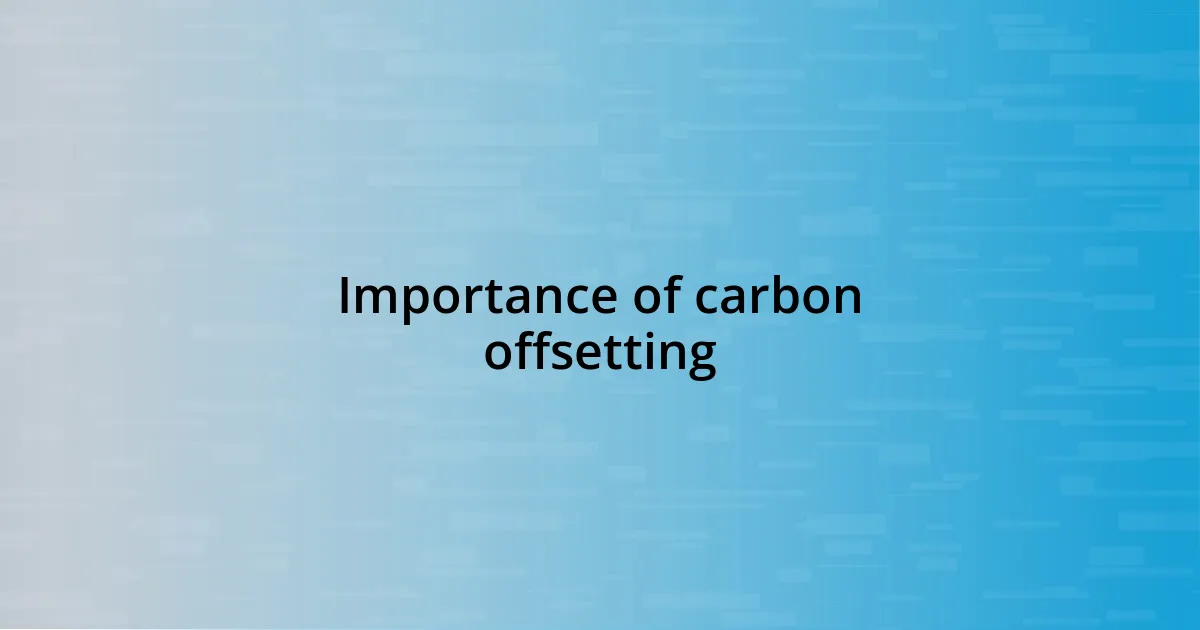
Importance of carbon offsetting
Offsetting carbon emissions has become increasingly significant in our efforts to combat climate change. It creates a tangible way for individuals and organizations to take responsibility for their environmental impact. I remember feeling a sense of empowerment when I purchased my first carbon offset to balance a flight I took. It transformed an abstract concept into a personal action, adding a layer of meaning to my travel choices.
Furthermore, carbon offsetting initiatives often support projects that provide additional benefits beyond reducing emissions. For instance, engaging in community-based projects not only helps the environment but also uplifts local economies. I was particularly moved by a program that trained locals in sustainable agriculture while simultaneously planting trees. It showed me that offsets can bridge environmental and social goals, fostering a sense of hope for both our planet and its people.
As I delved deeper, I realized that carbon offsetting promotes awareness about our daily habits. Understanding the impact of our choices has inspired me to adopt more sustainable practices, from reducing energy consumption to opting for public transport. It’s fascinating how one small decision, like supporting carbon offset projects, can spark a broader commitment to living in harmony with nature.
| Benefits | Environmental Impact |
|---|---|
| Community Engagement | Social Advantages |
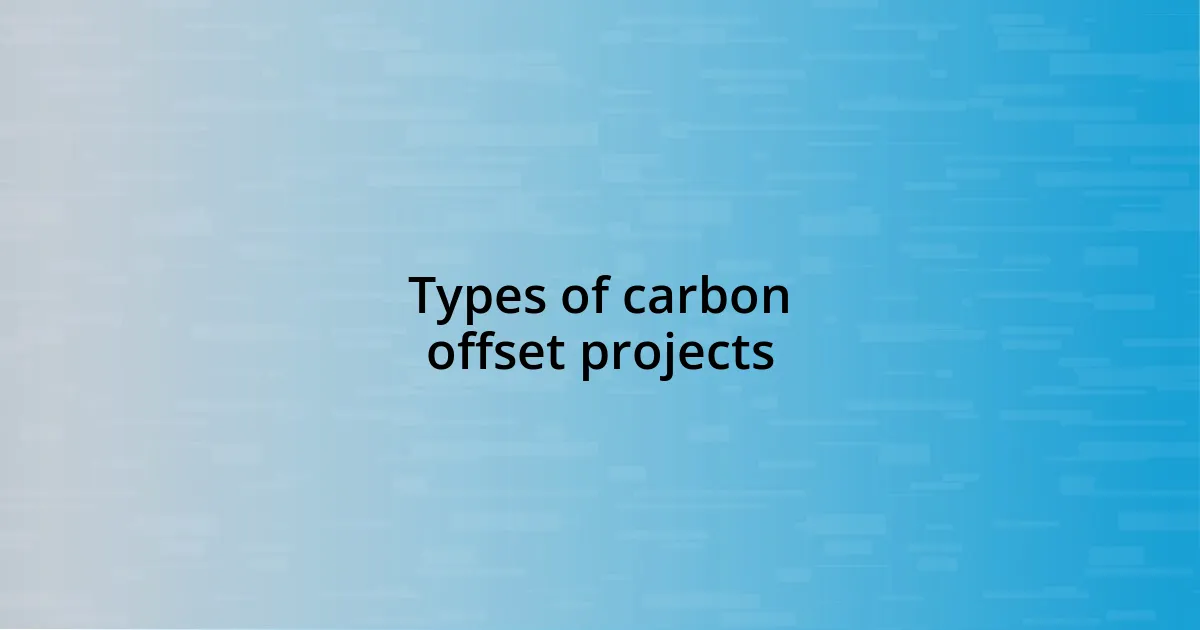
Types of carbon offset projects
The world of carbon offset projects is diverse, offering various paths to make a positive environmental impact. Each type of project has its unique approach, and personally, I’ve found it enlightening to explore how these methods contribute to sustainability. For instance, renewable energy projects not only provide clean power but also reduce reliance on fossil fuels.
Here are some notable types of carbon offset projects that I’ve encountered:
- Reforestation and afforestation: Planting trees to absorb carbon dioxide while enhancing biodiversity.
- Renewable energy projects: Investing in wind, solar, or hydroelectric power to reduce greenhouse gas emissions.
- Methane capture projects: Collecting methane from landfills or agricultural operations to prevent it from entering the atmosphere.
- Energy efficiency initiatives: Improving energy use in buildings or industries, minimizing their carbon footprint.
From my experience, supporting projects like local renewable energy initiatives not only feels rewarding but also connects you to a community’s broader goals. I vividly remember attending a workshop that focused on how solar panels were transforming a small town. The excitement in the room was palpable as residents shared their visions for a greener future. This kind of engagement highlights that carbon offsetting is about much more than neutralizing emissions; it can foster community spirit and ambition.
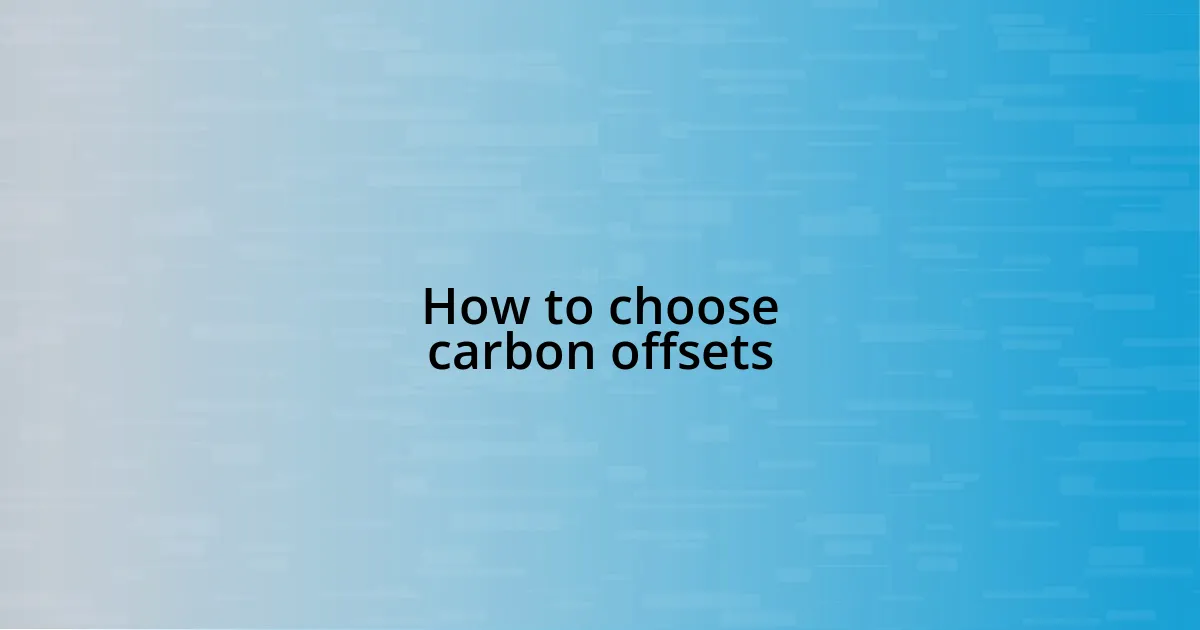
How to choose carbon offsets
When it comes to choosing carbon offsets, it’s essential to evaluate the credibility of the projects. I remember the first time I scrutinized a carbon offset program; I was surprised by how many initiatives promised results but lacked transparency. I learned to look for verified projects that are certified by reputable standards, such as the Verified Carbon Standard (VCS) or the Gold Standard. Trust me, researching these certifications not only boosts your confidence but also ensures that your contributions make a real difference.
I also found it helpful to consider the co-benefits of each project. For instance, I once supported a wind energy project that not only reduced emissions but also provided jobs in an area with high unemployment. That realization was a game-changer for me. It made me think: how often do we find opportunities that benefit both the planet and people in our communities? Embracing projects that address social issues alongside carbon reduction can create a more impactful narrative around our support.
Lastly, don’t overlook the importance of personal connection. I often network with individuals who share their experiences in offset projects, and it has opened my eyes to options I would have never discovered on my own. A friend once regaled me with stories from her trip to a reforestation site, where she helped plant trees and witnessed firsthand the project’s transformative effects. Engaging with others in this space not only secures valuable insights but fosters a sense of community and shared purpose. So, what offsets resonate with you personally? This reflection can guide your choices and deepen your commitment to sustainability.
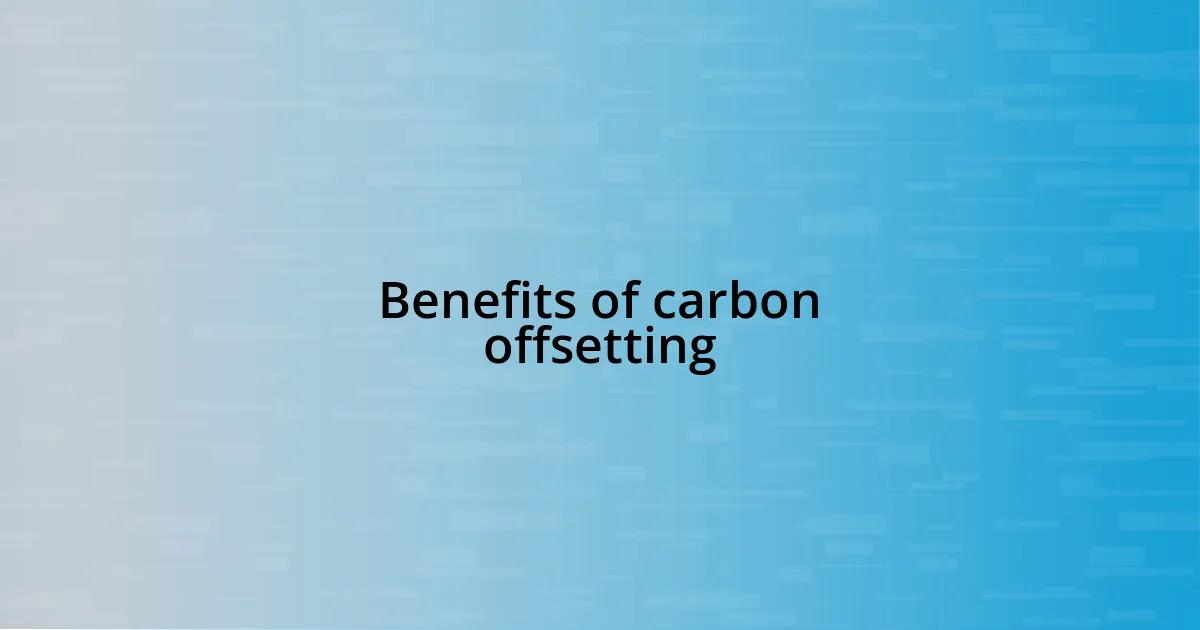
Benefits of carbon offsetting
Engaging in carbon offsetting has some remarkable benefits that go beyond just reducing emissions. For one, I remember contributing to a project aimed at protecting wetlands, and it was eye-opening to see how these areas not only sequester carbon but also provide essential habitats for wildlife. The interconnectedness of these ecosystems really struck me—protecting one aspect of our environment supports so many others. Isn’t it incredible how a small action can lead to such a big ripple effect?
Another advantage I’ve found is the great opportunity to raise awareness about climate issues. I often share my carbon offsetting experiences with friends and family, and it stirs conversations about sustainability. This dialogue can be powerful; I’ve seen how one conversation can spark a friend’s curiosity, leading them to explore their own eco-friendly practices. Moments like these remind me that carbon offsetting isn’t just a personal endeavor; it can help foster a broader cultural shift toward environmental responsibility.
Lastly, investing in carbon offsets often aligns with supporting local communities and economies. I vividly recall attending a documentary screening focused on a solar project in a neighboring region. The film not only highlighted the renewable energy benefits but also showcased how local artisans benefited from the initiative. This experience emphasized that carbon offsetting contributes to sustainable development, creating jobs and uplifting communities. When we think about carbon reduction, shouldn’t we also consider the positive human impact involved?
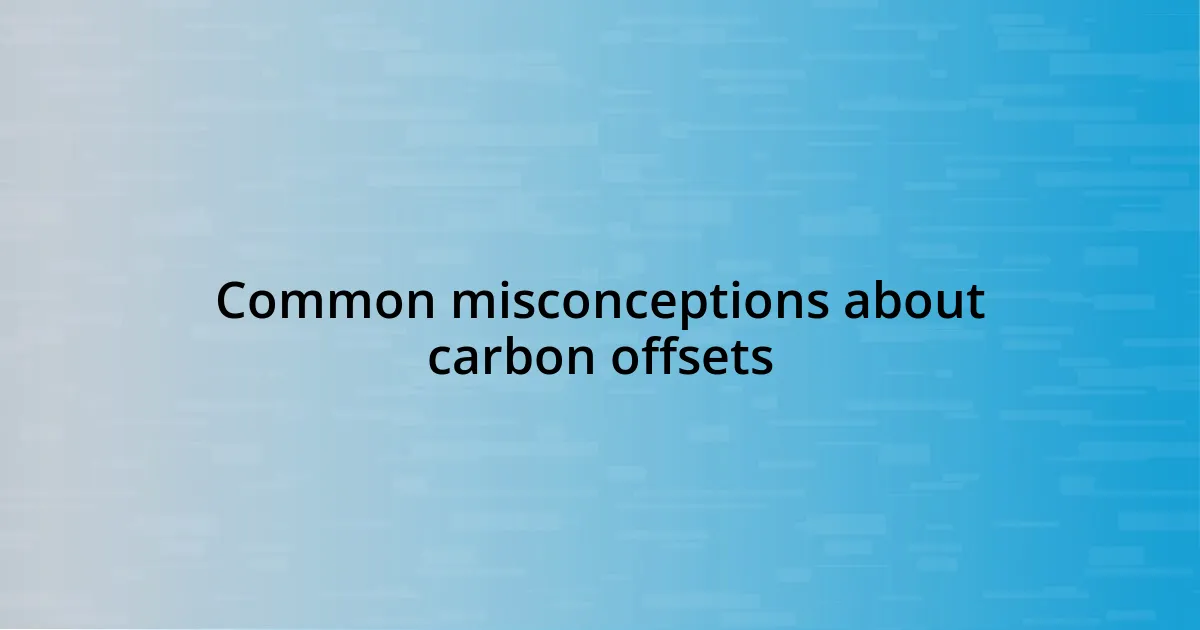
Common misconceptions about carbon offsets
It’s easy to fall into the trap of thinking that buying carbon offsets allows us to keep living our lives without any changes. I used to believe this too until I realized that offsets are meant to complement our efforts to reduce our carbon footprints, not replace them. Have you ever caught yourself justifying a big trip because you purchased a handful of offsets? The truth is, real impact comes from a holistic approach that combines both reduction and compensation.
Another misconception that often creeps in is the notion that all carbon offsets are created equal. I remember eagerly purchasing some offsets only to discover later that they came from projects lacking proper verification. This experience taught me the importance of scrutinizing the authenticity of offset projects. Why would we settle for lesser options when there are reputable certifications out there? Each time I evaluate an offset project, I find a renewed commitment to supporting the most impactful initiatives.
Finally, many believe that carbon offsetting is exclusively for eco-enthusiasts or large corporations. I was pleasantly surprised to find that everyday individuals can easily engage in offsetting their own carbon emissions. When I offset a small weekend getaway, I felt empowered realizing that every action counts, no matter how trivial it seems. Isn’t it inspiring to think that our collective small steps can lead to significant change?

